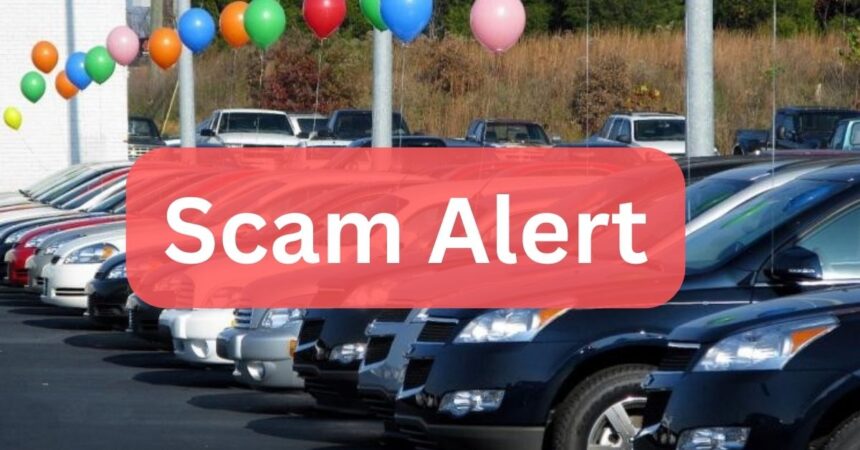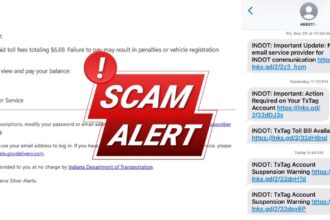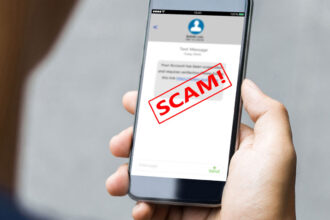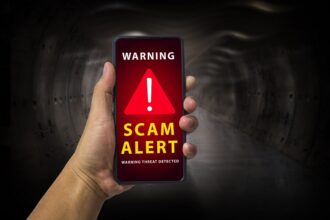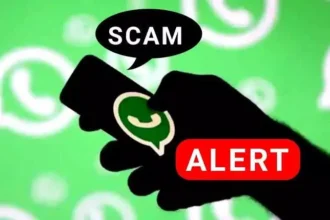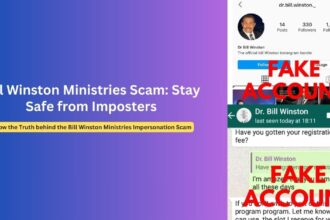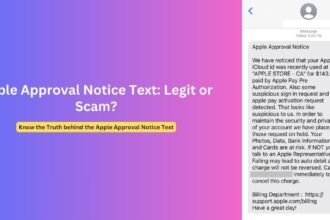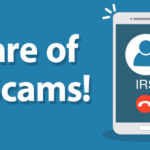In a troubling trend that has Wisconsin officials concerned, scammers are increasingly impersonating legitimate car dealerships online, leading to devastating financial losses for unsuspecting buyers. The Wisconsin Department of Transportation (WisDOT) Division of Motor Vehicles (DMV) has issued urgent warnings as victims report losing up to $190,000 in fraudulent vehicle purchases. These sophisticated “dealer clone” scams target anyone looking for a good deal, but leave buyers with empty bank accounts and no vehicle to show for it.
The Rise of Wisconsin Department of Transportation (WisDOT) Dealer Cloning Fraud
The Wisconsin DMV’s Dealer and Agent Section has documented a sharp increase in complaints about fraudulent online vehicle sales. According to Maura Schifalacqua, DMV Dealer and Agent Section Chief, scammers are creating increasingly convincing fake storefronts that mimic legitimate Wisconsin dealerships.
“The fraud scheme starts online as a fake storefront,” Schifalacqua explained. “An individual creates a website or a social media profile claiming to be a Wisconsin dealership. Stock images or photos of real vehicles and real Wisconsin dealerships are included to make the website seem legitimate.”
The DMV has received at least 15 reports of this particular scam, with victims losing anywhere from $25,000 to over $190,000. In 2024 alone, DMV’s Dealer and Agent Section’s Field Investigation Unit investigated 1,259 consumer complaints and managed to return approximately $1.7 million to car buyers who had fallen victim to various fraudulent schemes.
How the Wisconsin Department of Transportation Dealer Clone Scam Works
The scam follows a predictable pattern that has proven effective at trapping even cautious consumers:
- Creating Fake Dealerships: Scammers build convincing websites or social media profiles that appear to be legitimate Wisconsin car dealerships. In some cases, they clone existing dealership websites, while in others, they create entirely fictional businesses.
- Below-Market Pricing: The fraudsters advertise vehicles at prices significantly below market value to attract budget-conscious shoppers. These too-good-to-be-true prices serve as bait for potential victims.
- Remote Transaction Process: The entire sales process happens remotely, with no opportunity for buyers to see vehicles in person. Communication occurs exclusively through phone calls, emails, or text messages.
- Fake Documentation: To build trust, scammers provide seemingly legitimate documents, including fake bills of sale that closely resemble official Wisconsin forms but contain subtle differences that most consumers wouldn’t notice.
- Wire Transfer Payments: Once a buyer agrees to purchase, they’re instructed to send payment via wire transfer. Schifalacqua noted, “It’s a full payment of the vehicle that they think they’re paying for.”
- Disappearing Act: After receiving payment, the “seller” promises to ship the vehicle but then cuts off all communication, leaving the buyer with no recourse to recover their money.
In one case highlighted by the DMV, the business being impersonated never actually existed. More commonly, however, scammers create fake websites that mimic real Wisconsin dealerships, stealing their identity and reputation to commit fraud.
Victim Experiences and Financial Impact
The financial and emotional toll of these scams can be devastating. Wisconsin residents have reported losses ranging from significant to life-altering amounts:
“So we’ve seen it range from $25,000 all the way up to over $190,000 that people have wired for vehicles,” said Schifalacqua, highlighting the serious financial impact these scams can have on victims.
Many victims only realize they’ve been defrauded after days or weeks of waiting for a vehicle that never arrives. By then, their money has been transferred to untraceable accounts, and the fake dealership websites have often disappeared or changed.
The psychological impact extends beyond the financial loss, with victims reporting feelings of shame, anger, and helplessness. Many are reluctant to come forward due to embarrassment, which experts believe means the actual number of victims may be significantly higher than official reports indicate.
Red Flags to Watch For
WisDOT and the DMV have identified several warning signs that may indicate a vehicle selling scam:
Website and Communication Red Flags:
- Numerous spelling or grammatical errors on the seller’s website
- Manipulated or stock photos of businesses or vehicles
- Inconsistent or unprofessional communication
- Pressure to complete the sale quickly
- Reluctance to answer detailed questions about the vehicle
Transaction Red Flags:
- Vehicles priced well below comparable market listings
- Sellers refusing in-person inspections
- Requests for payment via wire transfer, gift cards, or cryptocurrency
- Absence of a proper Wisconsin Motor Vehicle Purchase Contract
- Missing or suspicious Wisconsin Buyer’s Guide
- Documentation that doesn’t match official Wisconsin forms
One specific red flag involves the bill of sale. Authentic Wisconsin vehicle bills of sale have distinct formatting and security features that fake versions typically lack. The DMV advises buyers to familiarize themselves with legitimate documentation before entering any transaction.
How to Protect Yourself When Buying a Vehicle
The Wisconsin DMV recommends taking the following precautions to avoid falling victim to online vehicle sale scams:
Before Contacting the Seller:
- Research current market values for the vehicle you’re interested in to identify suspiciously low prices
- Verify the dealership’s legitimacy by checking WisDOT’s active dealers list at wisconsindmv.gov/dealerlist
- Cross-reference the dealership’s contact information through multiple sources
- Review the dealer’s online presence, looking for established history and legitimate customer reviews
- Research vehicle purchasing information on WisDOT’s website
During the Transaction Process:
- Insist on inspecting the vehicle in person before sending any payment
- Examine the required Wisconsin Buyer’s Guide carefully
- Ensure the dealer uses a Motor Vehicle Purchase Contract as required by Wisconsin law
- Never send money via untraceable methods like gift cards or cryptocurrency
- If making a wire transfer, independently verify the bank’s contact information directly with the financial institution
- Ask detailed questions about the vehicle’s history, condition, and title status
Trust Your Instincts:
- If something seems suspicious or too good to be true, it probably is
- Walk away from any purchase where the seller seems evasive or pressures you to act quickly
- Legitimate dealers will answer as many questions as possible about their vehicles
“In this digital age, convenience often comes with risks,” Schifalacqua cautioned. “Taking the time to verify a dealer’s legitimacy and insisting on proper documentation can save consumers from significant financial loss.”
Multiple Fake WisDOT Fraud Schemes Targeting Wisconsin Drivers
The Wisconsin Department of Transportation dealer cloning scam is just one of several fraud schemes targeting Wisconsin drivers. The WisDOT has also warned about phishing attempts where scammers impersonate the DMV via text messages or emails.
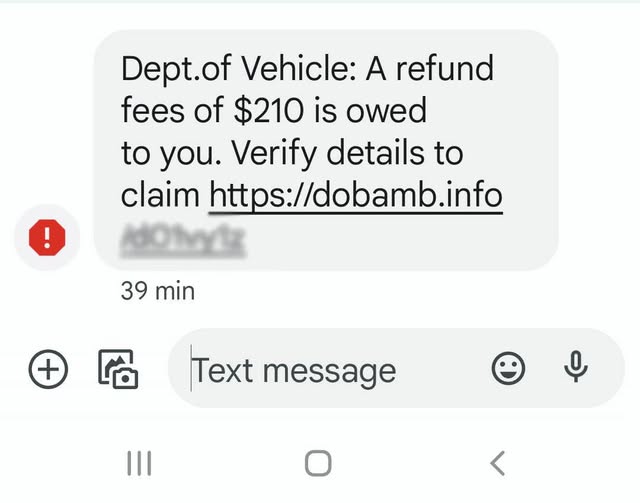
These messages typically claim that the recipient is owed a refund and needs to verify their information through a provided link. One example shared by WisDOT showed a text message claiming: “Dept.of Vehicle: A refund fees of $210 is owed to you. Verify details to claim https://dobamb.info.”
To combat these phishing attempts, WisDOT advises:
- Ignoring unsolicited text messages or emails from unknown sources
- Never clicking on suspicious links
- Signing up for legitimate account activity alerts through DMV’s eNotify service
The proliferation of these scams highlights the need for Wisconsin residents to maintain vigilance across all their interactions with purported transportation authorities and vehicle sellers.
What to Do If You’ve Been Scammed
If you believe you’ve fallen victim to a vehicle sales scam, the Wisconsin DMV recommends taking these steps:
- File a dealer complaint with WisDOT’s DMV Dealer and Agent Section at wisconsindmv.gov/dealercomplaint
- Report internet-based crime through the FBI’s Internet Crime Complaint Center at www.ic3.gov
- File a police report with your local law enforcement agency
- Contact AARP’s Fraud Watch Helpline, which offers Fraud Victim Support Groups for people of all ages
- Request a free credit report and research identity theft prevention at annualcreditreport.com
Acting quickly increases the chances of recovering funds and helps authorities track down perpetrators. Additionally, reporting these scams helps the DMV identify new fraud patterns and warn other potential victims.
Conclusion: Stay Vigilant in the Digital Marketplace
As online vehicle shopping continues to grow in popularity, so too do the sophisticated scams targeting eager buyers. The Wisconsin DMV emphasizes that legitimate dealerships welcome thorough questioning and in-person inspections, while scammers rely on rushed decisions and remote transactions.
“We want Wisconsin consumers to know that we’re here to help,” said Schifalacqua. “Our goal is to protect buyers while supporting legitimate Wisconsin dealers who follow the rules.”
By remaining vigilant, verifying dealership credentials, and insisting on proper documentation, Wisconsin car buyers can protect themselves from these increasingly common fraud schemes. When in doubt, the DMV encourages consumers to reach out directly to their offices for guidance and verification.
For more information on vehicle purchasing, dealer verification, or to report suspected fraud, visit wisconsindmv.gov or contact the WisDOT Office of Public Affairs at (608) 266-3581.
